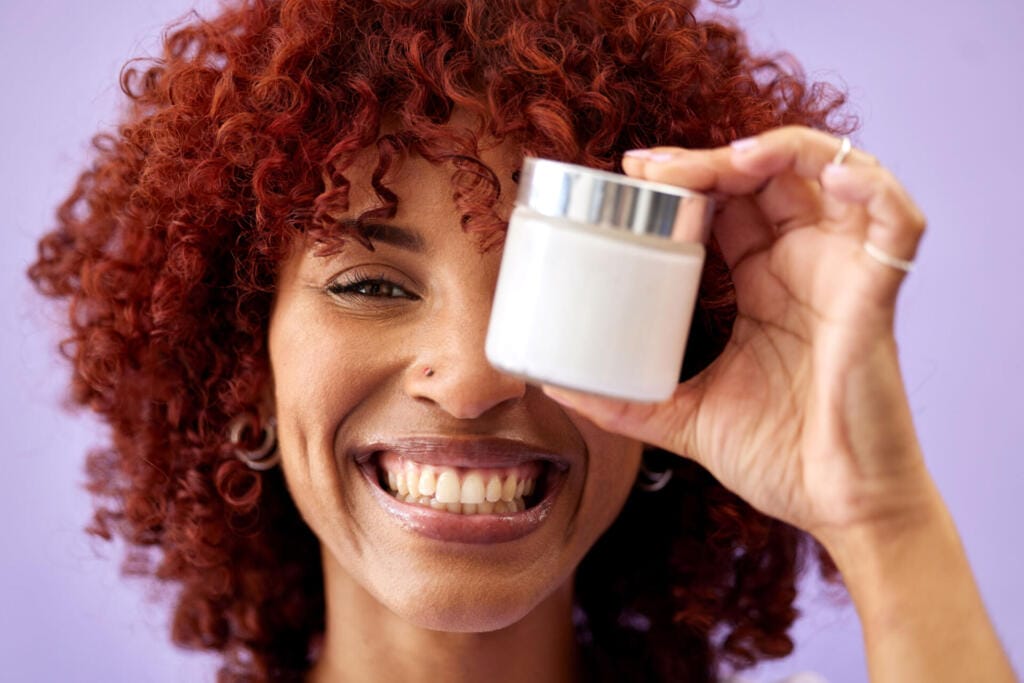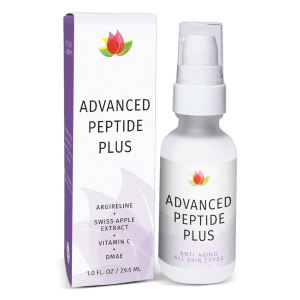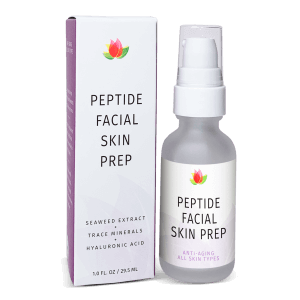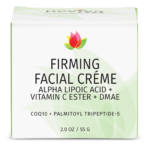Ingredients, Reviva Labs, Skin Care
Why Peptides for Skin?
When it comes to skincare, we’re often looking for that one magic ingredient. Something that promises real results—hydrated skin, fewer wrinkles, better texture. What if I told you that ingredient may already exist? Peptides have become a staple in skincare, and for good reason. They offer potent, proven benefits for a wide variety of skin concerns. But what exactly are peptides, and why do they work so well for our skin? Let’s explore how this powerhouse ingredient is redefining modern skincare.
Peptides: What Are They, Really?
Let’s start at the beginning. Peptides are short chains of amino acids, which are the building blocks of proteins like collagen and elastin. Now, I know what you’re thinking—amino acids, proteins, peptides—it sounds like a biology class! But bear with me. These little chains are far more exciting than they might seem. Collagen, the most abundant protein in your skin, is essential for keeping it firm and youthful. As we age, however, collagen production declines, leading to wrinkles, fine lines, and a loss of elasticity. That’s where peptides come into play.
Peptides act like messengers for your skin, sending signals to your cells to produce more collagen. Think of them as the ultimate skin whisperers! By applying peptides topically, you’re essentially nudging your skin to boost collagen production, which leads to firmer, smoother, and more hydrated skin over time.
The Science Behind Peptides in Skincare
There’s no shortage of ingredients that claim to help your skin, but the reason peptides stand out is that they are backed by real science. The way they function at a cellular level is unique and impactful. When peptides are applied to the skin, they can penetrate the outer layer—something many skincare ingredients can’t do. Once inside, they trigger the production of collagen, elastin, and other important proteins, all of which are vital for maintaining skin’s structural integrity.
What’s even more fascinating is that there are different types of peptides, and each one serves a unique function. Some are better at increasing collagen production, while others help with skin repair, moisture retention, or reducing inflammation. For example, hexapeptides are particularly effective at smoothing fine lines, while copper peptides are known for their role in healing damaged skin. It’s like a targeted treatment for whatever your skin needs most!
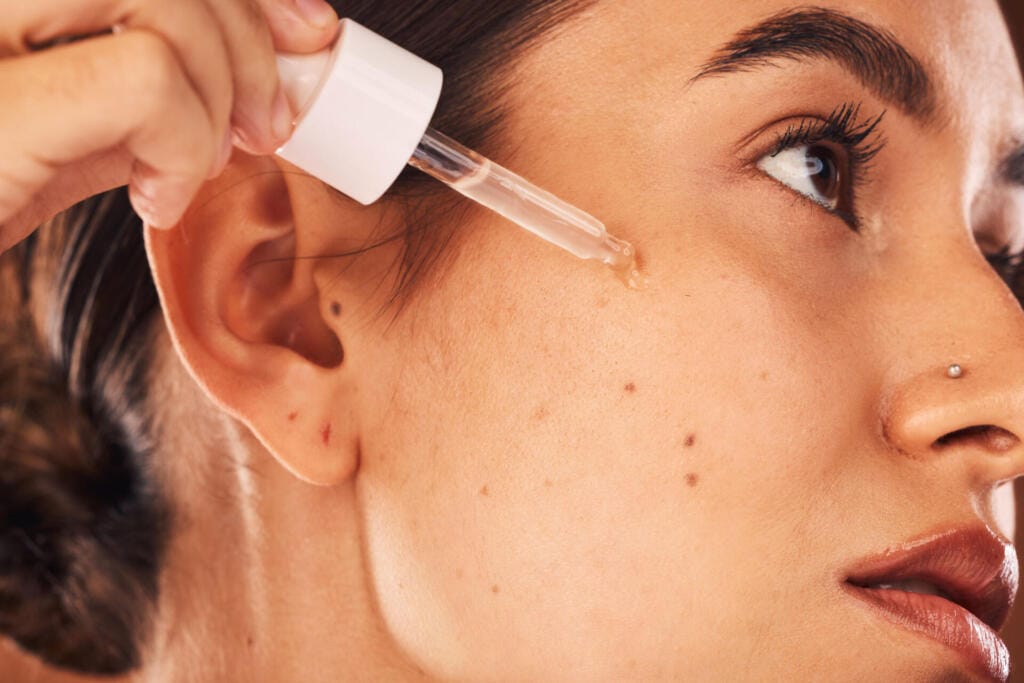
Why Peptides Are Better Than Other Anti-Aging Ingredients
At this point, you might be wondering, “But aren’t there plenty of other ingredients that claim to do the same thing?” Yes, skincare aisles are lined with products boasting ingredients like retinol, hyaluronic acid, and vitamin C. While these ingredients are great and certainly have their place in a solid skincare routine, peptides offer something uniquely effective.
First, peptides are incredibly gentle. Unlike retinol, which can cause irritation, redness, or dryness, peptides tend to be well-tolerated by all skin types—even sensitive skin. This makes them a fantastic alternative if you’re looking for anti-aging benefits without the risk of irritation. In fact, peptides can often complement other active ingredients, working synergistically to enhance the overall health of your skin. So, if you’ve been hesitant about using stronger ingredients due to skin sensitivity, peptides could be your new go-to.
Additionally, peptides don’t just treat the symptoms of aging skin—they address the root cause: declining collagen and elastin. Many other anti-aging ingredients focus primarily on surface-level improvements like hydration or antioxidant protection. Peptides, on the other hand, actually work beneath the surface to rebuild your skin’s natural strength and resilience over time.
What Can You Expect When Using Peptides?
The great thing about peptides is that they’re incredibly versatile. Whether you’re in your twenties and looking to get ahead of the aging curve, or in your fifties and wanting to soften existing fine lines and wrinkles, peptides can help. And let’s be honest, who doesn’t love a product that offers visible results?
For those just starting with peptides, here’s what you can expect. After consistent use for a few weeks, you’ll likely notice your skin feels smoother, more hydrated, and perhaps even a bit firmer. Over time—think months rather than days—you may start to see improvements in the depth of fine lines and wrinkles, as well as overall skin texture. The best part? Peptides are safe to use long-term. Unlike some ingredients that can cause your skin to build up a tolerance, peptides remain effective as part of your daily routine.
But here’s a tip: consistency is key. Like any good skincare product, peptides need to be used regularly for the best results. Don’t expect to see miracles overnight! It’s more like training for a marathon—your skin will gradually improve, and before you know it, you’ll be reaping the rewards of all your hard work.
How Peptides Help with Specific Skin Concerns
Peptides aren’t just for wrinkles and anti-aging; they offer a wide range of benefits that can help with various skin concerns. Let’s take a look at some specific issues peptides can address:
- Hydration: Certain peptides can improve the skin barrier, which is critical for retaining moisture. A healthy skin barrier ensures your skin stays hydrated and supple, reducing the chances of flakiness or irritation.
- Skin Elasticity: As we age, the loss of elasticity is a common problem. Peptides that stimulate elastin production can help the skin maintain its youthful bounce and firmness.
- Acne Scarring: Some peptides, particularly copper peptides, are known for their ability to repair skin and reduce scarring. If you’ve struggled with acne scars, incorporating peptides into your skincare routine could significantly improve your skin’s texture over time.
- Inflammation: Inflammation is a common issue, especially for those with sensitive or acne-prone skin. Peptides with anti-inflammatory properties can help calm redness and irritation, making them ideal for anyone dealing with inflamed, angry skin.
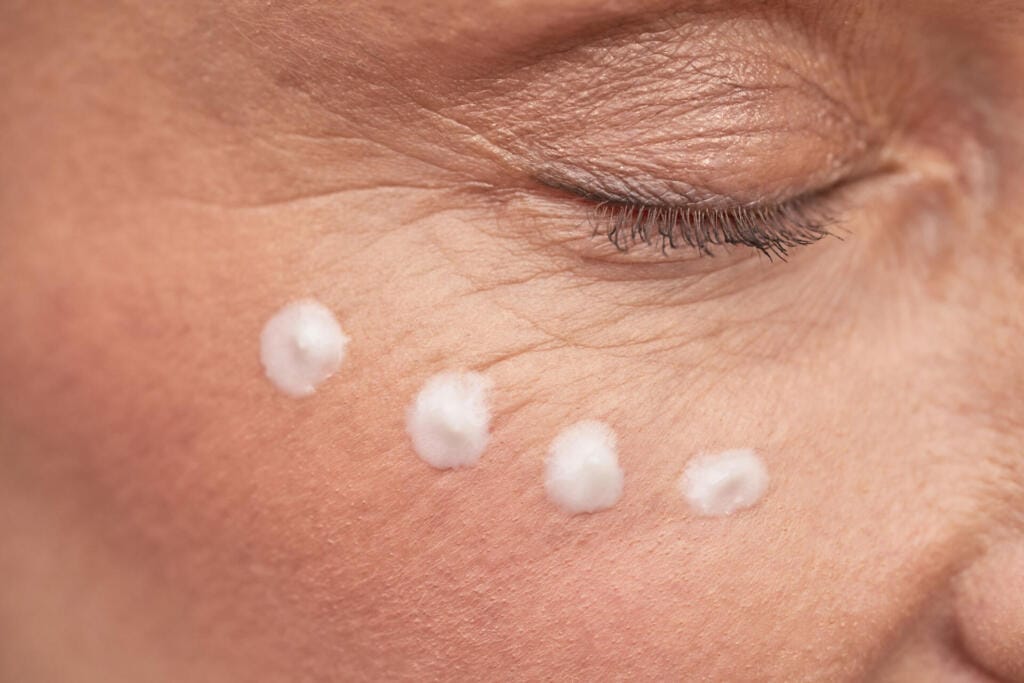
How to Incorporate Peptides into Your Routine
Adding peptides to your skincare routine is easier than you might think. They’re typically found in serums, moisturizers, and eye creams, so you’ve got plenty of options. You don’t need to overhaul your entire routine—just swap out one or two products for peptide-infused versions. If you’re already using a hydrating serum, for instance, you can easily upgrade to one that contains peptides for that extra collagen-boosting kick.
When it comes to applying peptide products, I recommend using them in the morning and evening. Serums are especially effective after cleansing and before moisturizing because they can penetrate deeply into the skin. Make sure to apply the serum to damp skin, which will help with absorption. Follow it up with a moisturizer that contains peptides to lock in hydration and reinforce your skin’s barrier.
And remember, sunscreen is your skin’s best friend. Peptides work wonders for repairing and protecting your skin, but if you’re not using SPF daily, you’re undermining all that hard work. Apply a broad-spectrum sunscreen with at least SPF 30 every morning, no matter the weather.
Peptides: The Key to Healthy, Youthful Skin?
So, why peptides for your skin? The answer is simple: they work. Peptides offer a scientifically backed, multitasking approach to improving the appearance and health of your skin. From boosting collagen and elastin to promoting skin repair and hydration, they tackle some of the most common skin concerns with ease. Better yet, they’re gentle enough for nearly everyone to use, even those with sensitive skin.
What makes peptides particularly compelling is that they provide long-term benefits without the drawbacks of some more aggressive ingredients. The skin benefits you experience over time with peptides are not just superficial; they build and fortify your skin from the inside out, making peptides a must-have for anyone serious about their skincare routine.
It’s safe to say that peptides are no passing trend—they’re here to stay. Whether you’re new to skincare or a seasoned enthusiast, incorporating peptides into your regimen is a smart move. As always, consistency is key, and the results will be worth the wait!
So why not start now? Your future skin will thank you.



